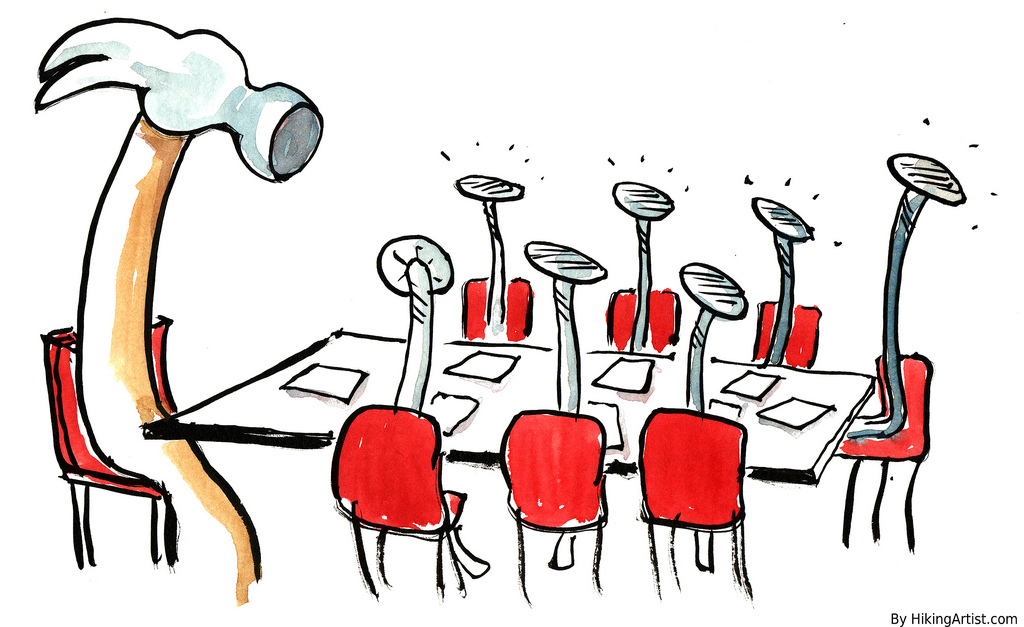5 Thought Leaders Explain How To Treat Employees To Influence Success
Can you imagine a world where all employers view their employees as whole human beings who desire meaning and purpose in their personal and professional lives? It turns out that employee-focused management creates the most productive and sustainably engaged employees, which in-turn creates more profitable businesses.
This month’s roundup of articles explores a shift in perspective — refocusing the lens to see employees as full-spectrum humans, and managers as people who support their growth and well-being. Employees in this brave new world not only excel at their work and grow more loyal to the company, but also have the space to discover fulfillment in every aspect of their lives.
1. Positive Teams Are More Productive
by Emma Seppälä
Let’s toss out the old methods of engagement, the carrots (perks and bonuses) designed to boost performance. Instead, why not treat one another well all the time, making the workplace a more positive place to be?
Seppälä brings us the tools to form a practical ethos around positivity to create connection, confidence and well-being in the workplace. Drawing from a recent study in the Journal of Applied Behavioral Science, she lays out the practices that boost performance and the reasons these benefit companies across the board:
-
Care for, support, and inspire one another at work
-
Offer kindness and compassion when others are struggling
-
Avoid blame and forgive mistakes
-
Demonstrate respect, gratitude, trust, and integrity
In the midst of challenge and struggle, committing to positivity while communicating authentically, makes for strong, confident teams. On high functioning teams, everyone is committed to growth and supported by the exemplary leadership of caring managers. These are key features of some of the fastest growing companies in the country.

2. In Praise of Meaningless Work
by Joe Keohane
As the pendulum swings from the paradigm of worker-as-cog, to employee-as-human, making work meaningful has significant implications on work/life balance. On one end, imbuing purpose can motivate workers to step into leadership roles and take on longer hours. On the other, working excessive hours without anything left for personal development is not ultimately fulfilling.
Instead of working people into the ground with high ideals in tow, it would behoove managers to acknowledge that people need to rest and recuperate, spend time with their families, and create meaning in their lives outside of the office.
Hire the right people and give them tasks that are aligned with their zones of genius. Then mentor them towards personal and professional success, which results in unimaginable enhancements to businesses. Keohane lays it down authentically and simply in his plea to managers: “Hire good people. Treat them well. Help them succeed. Compensate them fairly. Let them go home.”
3. When Employee Engagement Turns Into Employee Burnout
Employee engagement is all the rage these days. But that usually translates into arriving early, staying late and foregoing a balanced healthy lifestyle. It turns out that many of today’s companies with the highest profit margins also promote physical, emotional, and social well-being in their employees.
Schwartz highlights the phenomenon of “compassion fatigue”. In mission-driven organizations where people are inspired to give time and effort to help others, they are rarely supported in caring for themselves. It’s not realistic to expect employees to invest in a higher purpose if employers aren’t meeting their core needs.
The new gauge of successful teams is in correlation to how consistently energized they feel. This requires the space to rest and refuel, and 60-70 hour workweeks are not going to cut it in that regard. Core needs like sleep, basic self-care, and time on nights and weekends to connect with friends and family all are important. When employees feel that their core needs are being met, they come to work more activated to give to their teams. And by living their purpose outside of work, people derive inspiration and motivation to contribute their best at the office.
4. Workplace Culture is Everything: 20 Ideas For Building a Thriving Team
by Paul Jun
Positive company culture begins in the exemplary, imitation-worthy behaviors that reflect the core values of an organization of leaders. This includes acknowledging the difference between productivity and over-work, committing to creativity, and being curious about what enables employees to bring their gifts and stay motivated:
“You owe it not only to yourself, your customers, and your dreams, but to your team that grows alongside with you. Providing that place of security, freedom, motivation, and meaningful work—what greater honor is there than to help others live well and inspire them to actualize their potential?”
By Liz Ryan
The “Happy Employee Model” is becoming a fad that prioritizes the more material comforts of spacious offices and flexible hours, but fails to actually provide the results of true employee happiness. Instead of implementing more programs to ensure contented co-collaborators, Ryan argues that the real focus should be around removing whatever is in the way of connection and empowerment in the first place.
She asks managers to make their workplaces more human and stop insulting their workers with talk about making employees happy while the obstacles to happiness are clear:
-
Forced or stacked ranking
-
Red tape bureaucracy and rules
-
Archaic policies around attendance and bereavement leave
-
Individual performance management systems
Old paradigm policy is not going to bring us into a more human workplace. Begin with dismantling the “Godzilla apparatus” that drives fear and is a major obstacle in the way of trust. Release the binds of old structures that limit growth and creative potential, and make room for inspiration to flourish.
What would it look like for managers to support employees at work while simultaneously meeting their core needs for self-care and personal fulfillment? What if we committed to shifting into a re-humanized workplace, where people are supported in living great lives and everyone is more successful as a result?



